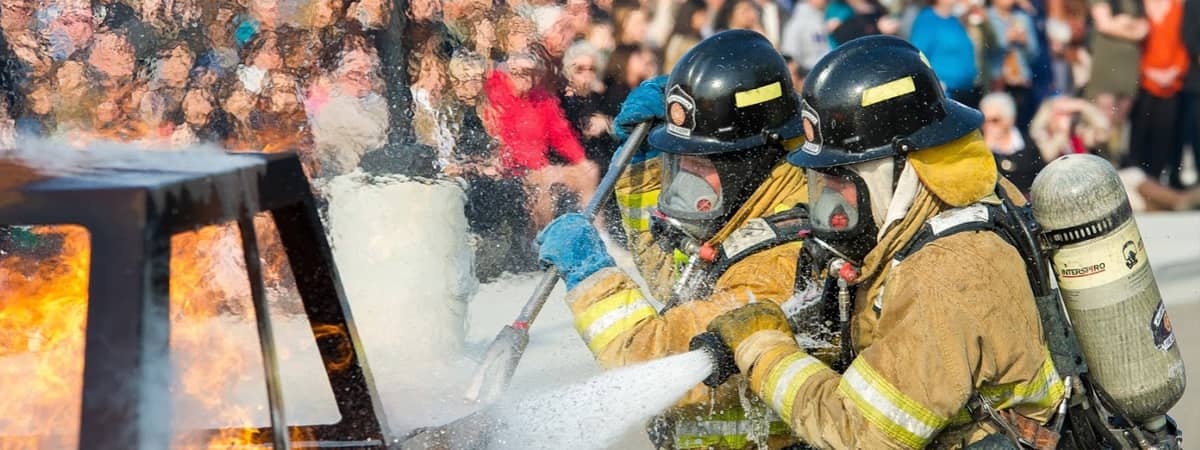Allan Hancock College's fire technology program offers high-quality educational opportunities that enhance a student's understanding of the fire service field. Students in the program learn the fundamentals of safety and efficiency in emergency and fire situations, as well as analyze the causes of fires and how to fight them. Students are provided with a challenging learning environment that includes hands-on experience in a world-class training center.
This program will help you to:
- increase your physical and mental fitness
- develop humility, maturity, and accountability
- understand the importance of dedication to the team and self
- become a more competent public speaker
- demonstrate the skill set necessary for a successful career in fire service, environmental technology, and/or emergency medical services
- understand federal and state laws, regulations, and codes of safety and efficiency in all risk emergencies and scenarios of fire, safety, and/or medical services
Fire Academy Spring 2026 Application Deadline: September 17, 2025, to October 31, 2025
Fire Academy Spring 2026 Application
Women's Fire Camp
Saturday, May 30, 2026 | 9 a.m. to 5 p.m.
Degrees and Certificates Offered
Each program has unique requirements. The order in which you take courses may affect your completion time. Visit the links below to view the program requirements and a general semester-by-semester course schedule.
Associate in Science- Fire Technology
Certificate of Achievement- Fire Technology
Certificate of Accomplishment- Firefighter Academy
To view all available degrees and certificates visit the Allan Hancock College course catalog.
Programs you may also be interested in exploring...
- Basic Law Enforcement
- Emergency Medical Services
- Firefighter Internship Program
- Wildland Fire Technology
Contact Information
Leonard Champion
Fire Academy Faculty/Coordinator
lchampion@hancockcollege.edu
805-735-3366 ext. 3807
John Ceceña
Fire Technology Coordinator
john.ceceña@hancockcollege.edu
805-735-3366 ext. 5246
Tiffany Alexander
Program Technician
tiffany.alexander1@hancockcollege.edu
805-735-3366 ext. 3282
Accreditation Information
Allan Hancock College is an Accredited Regional Training Program (ARTP), and the Fire Academy is part of the California State Fire Marshal’s accreditation. Since 1972, we have taught Firefighter-1 classes as part of our 609-hour certified Fire Academy program.
The Firefighter 1 Academy is a California State Fire Marshal-certified academy that meets all the requirements in the National Fire Protection Association (NFPA) 1001 for entry-level firefighters. Our academy is the foundation for a career in the fire service. The Certification Training Standards for Firefighter 1 are followed and signed off on as you complete each block of instruction. Certification exams require a passing score of at least 80 percent, and manipulative exams require a score of 100 percent.


